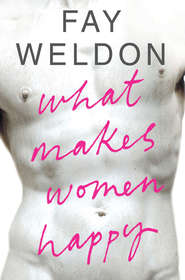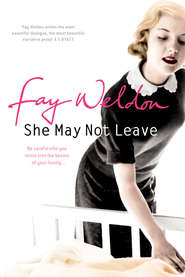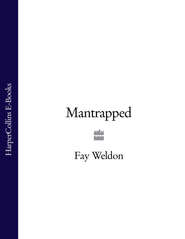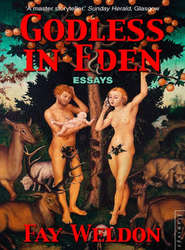По всем вопросам обращайтесь на: info@litportal.ru
(©) 2003-2024.
✖
The President’s Child
Автор
Год написания книги
2018
Настройки чтения
Размер шрифта
Высота строк
Поля
‘What everyone?’
‘Everyone,’ said her mother, desolately.
And who indeed was everyone? Harriet’s friends and family had scattered. That was what war did. It took families by the scruff of their neck and shook them and tossed them in the air, and didn’t even bother to see where they fell, as the farm dogs did with rats.
But Isabel’s mother hadn’t been there to see the war, of course. War rolled across far continents, killing everything it touched. Isabel’s mother just sat and gazed at an unchanging, yellow horizon, over which a red sun rose and fell, and the people of her past had atrophied in her mind, set in their condemning ways. Would anyone bother now to say, ‘I told you so'? Of course not. Or was there anyone left to say it? Isabel’s mother could hardly know any more. She never answered letters, and presently they’d stopped coming.
Now she wept over Seeker, who had ruined her daughter’s face; but saved her character.
‘It’s unlucky to be beautiful,’ Harriet said to Isabel, once. ‘If you are, some man just comes along and marries you and stops you making your way in the world.’
The hot sun and the hard rain had turned Harriet’s skin to leather, and stubbornness had set her mouth askew, and her eyes were red-rimmed from staring at the horizon. But once she had been beautiful. Isabel thought she was still beautiful. And so, no doubt, thought Isabel’s father, long ago.
Isabel’s mother wouldn’t talk about Isabel’s father. ‘He did what he wanted,’ was the most she ever said, ‘the way all men do.’
Isabel thought he must have been strong, to have farmed so many acres on his own, and powerful, to rule over it. She thought he must have been one of the natural lords of that land: tall, lean, bronzed, mean, with features sharpened by the hot wind: packs of dogs and horses and lesser men scurrying at their heels. The lesser men were red from Foster’s and rendered stupid, if they hadn’t been to begin with, by the coarseness and ignorance in which they traded. If there was a flower, they trod it underfoot, and laughed. If there was a dog, they kicked it. That was why the dogs snarled and snapped.
She could not see her mother with that kind of man. Her mother saw visions, too, Isabel was sure of it. Her mother saw something of the infinite in the yellow dust, or in the rusty clouds swirling over the flat land, that sometimes illuminated her face and made her sigh with pleasure.
‘What’s the matter?’ asked Isabel the little girl. ‘Is there something out there?’
‘Something more than I can tell,’ said Isabel’s mother, averting her eyes from the horizon, scraping away at burnt, thin-bottomed saucepans.
Isabel tore a leg off her favourite doll, smeared it with mutton fat, and gave it to the dogs to chew.
Isabel told me so. She never confessed it to anyone else; not Homer her husband, and certainly not Jason her son. I am blind and can be trusted not to condemn.
Pit-pat, spitter-spat. Jennifer has made tea. Hilary offers me a plate of biscuits.
‘Chocolate chip a.m.: lemon sandwiches p.m.,’ she says, describing the plate to me.
I take the chocolate chip from nine o’clock. Lemon sandwiches flake all over the carpets, and though the blind can vacuum clean it is not a very efficient process. Hope brought them with her. She should have known better.
I have been blind for two years. I crossed a road without looking. A car hit me behind the knees. I bounced on to its bonnet and off again, cracking my head on the kerb, somewhere to the left of the medulla; in the area which controls the sight. The blow did unspecified damage which means my eyes simply fail to register what they see. The fact intrigues surgeons and eye specialists and indeed psychiatrists, and I am forever up at the hospital while they peer and probe and inject and intrude. They did an operation which left the left side of my right hand insensitive to hot and cold, but achieved nothing except my pain and terror and humiliation. Occasionally some irritable physician will remark, ‘I am sure you could see if you wanted to.’
There are ranks in blindness, of course, like anything else. I, being slightly mysterious in my plight, almost wilful, and my eyes looking pretty much like anyone else’s, come high up on the scale. A noble blindness. To have been born blind, or to have gone blind through illness, ranks lower. A pitiful, punitive blindness. The sense that God afflicts us at our birth because we deserve it is strong. The millions of India live by the notion, after all.
An accident, however! Accidents happen to everyone. They are dramatic and exciting; children love them, and the wearing of the plaster that signifies calamity. I ran into the street because I had had a quarrel with my husband Laurence, and I didn’t see the car coming because I was crying, or perhaps because I didn’t want to.
Listen to the rain against the window! Summer rain. Each drop is a lost human soul, driven by winds it cannot comprehend, trying to get in here where it is safe and warm, where we gather our infirmities together and make the most of what we have. Be grateful for the glass that saves you from the force of such savagery and discontent. Drape it with curtains; polish it on fine days; try not to see too much, but just enough for survival’s sake. Preserve your peace of mind. There is not much time; all things end in death. Do not lament the past too much, or fear the future too acutely, or waste too much energy on other people’s woes, in case the present dissolves altogether.
These things Isabel taught me in spite of herself. Little by little, she revealed herself and her story to me. Pit-pat, spitter-spat. Draw the curtain.
2 (#ulink_f37f415b-ca3e-5715-b17a-b2db4d7a68ea)
On Jason’s sixth birthday Isabel woke with the feeling that something was wrong. She was launched suddenly into consciousness, one second lying in dreams, the next starting into alertness. She thought perhaps there was an intruder in the room, but of course there was not. Homer lay beside her as usual on the brass bed, on his side, relaxed and peaceful, legitimate and uxorious, the delicate skin of his eyelids stretched fine over his mildly prominent eyes. His face had the vulnerable, slightly raw look that faces do, which go bespectacled by day and naked by night.
He slept quietly. He always did. A man with a clear conscience, thought Isabel. Not weltering and hiding deep down somewhere beneath the levels of consciousness – but neatly and tidily, just below the surface, afraid of nothing because he had done no wrong. If Homer slept, what could be amiss?
Something. Jason? No. If she listened hard, as now she did, she could hear the rhythmic change in the stillness which meant that Jason too slept soundly in the room above.
Nothing unusual was happening outside in Wincaster Row. It was half-past six, too early for the milkman, the paperboy or the postman: those ritual early callers who come like the sun, to remind each household that it is not alone but owes a living, perforce, to the rest, and must soon get up and make it. Well, time enough.
The fright that woke Isabel did not diminish with the discovery that there was no cause for it; rather it intensified into a profounder apprehension: the feeling that something terrible was about to happen.
Work? But what could happen there? She had so far presented four late-night programmes for the BBC: they had gone successfully; she had a new two-year contract; the work was comparatively easy. True, it involved the professionalisation of the self, every Monday night, the handing over of the persona for consumption by millions; but that came easily enough, and was forgotten by Tuesday afternoon. Even if her contract was cancelled, and she was ignominiously dismissed, she would not see that as disastrous but as a practical problem. This sudden new fear, now so powerful that it made her catch her breath and hug her chest, had nothing to do with practicalities.
Jason’s birthday? In the afternoon he was to have an outing to the cinema with five school friends. That, although nothing to look forward to, was surely nothing to fear. In fact Homer was to return early from the office and take them to the cinema, while she would stay home and ice the cake and cut little sandwiches into animal shapes. The division of labour was fair, and had been accomplished, as usual, without acrimony.
‘It’s true I’ll get to see the film,’ said Homer, ‘and you won’t. But watching Superman II with five six-year-olds is a dubious pleasure. You’re sure you don’t want to do it the other way round?’
‘No,’ said Isabel. ‘Besides, you’d make the sandwiches with brown bread in spite of it being Jason’s birthday.’
‘Jason’s digestion doesn’t know it’s his birthday,’ said Homer.
Nothing there, surely, to have her sitting up in alarm in her lacy white bed, in the safety of the dark, green-papered walls, the gilt mirrors on the walls throwing back images only of what was familiar and loved.
Isabel got out of bed and went upstairs to Jason’s bedroom. She, who once slept in the nude, now slept in a nightie – as do the mothers of wakeful children – which served as dressing gown as well.
Jason slept on his back, arms outflung, an expression of benign calm on his face. At the foot of his bed were stacked presents, wrapped by Homer and herself the night before.
Jason’s American grandparents had sent a cowboy suit in real leather, with silver-plated holsters and guns.
‘Should we?’ said Homer. ‘Guns?’
‘It’s his birthday,’ said Isabel. ‘And everyone else does. And research shows that children deprived of the formalised expression of aggression via fantasy perform more aggressive acts than children not so deprived.’
‘How convenient,’ said Homer. But the guns were beautifully made, light, delicately filigreed, and Jason would be proud of them. So Homer sighed and added them to the pile.
There was no present from Harriet in Australia. There never was.
‘I don’t think my mother is a woman at all,’ Isabel had said to Homer the night before. ‘Not now. Once she was, but now she’s turned herself into the trunk of an old gum tree, and the sand has silted her up.’ Homer had kissed Isabel and held her hand and said nothing, for there was nothing to be said.
Harriet! Of course, that was it. Something wrong! Isabel went downstairs to the living room – the two ground floor rooms made into one – where the blinds were still down, and the two companionable glasses still stood from the night before, and three half-smoked cigarettes, evidence of Homer’s attempts to give up smoking by the idiosyncratic and expensive method of smoking less and less of each cigarette he lit. She telephoned Australia. She could dial direct now: she did not need the intermediary of a telephonist. Twelve numbers, and there was her mother, and her past.
The telephone rang and rang in her mother’s house, unanswered. The instrument stood in the window sill by the front porch, and whenever it rang grains of sand would jump and bounce around its base in a dance of amazement. Isabel had watched them, many times. Perhaps my mother is lying there on the kitchen floor, she thought, on the other side of the fly screen, and that’s why she doesn’t answer. She’s dead, or had a stroke, or a heart attack; or she’s been raped and robbed; or perhaps she has a boyfriend at last and stays out nights.
A tune rang through her head. A folk singer had sung it on last week’s show:
‘Bad news is come to town, Bad news is carried, Some say my love is dead, Some say he’s married.’
Or perhaps she no longer answers the phone. Eight years since I last saw her. She has sunk finally back into herself; allows me to live her life for her.
The ringing stopped. Her mother said hello.
‘Hello, Mother.’
‘Oh, it’s you, Isabel. How are you, chicken?’











